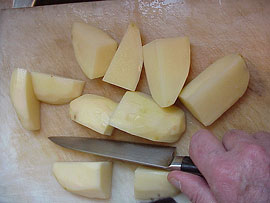
There are lots of kinds of potatoes around, so you have to watch out for the right
ones, which are usually sold as baking potatoes. Nothing like a good Idaho russet!
I think it's important not to cut the pieces too small.
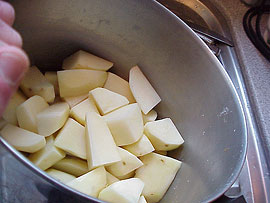
This is a pretty big pot, and about a dozen potatoes. Seems I get better results
with a nice big batch, and we like leftovers.
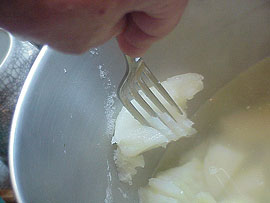
I'm making mashed potatoes, not MUSHED potatoes, so I want to be VERY careful not
to overcook them. I drag one piece up the side of the pot and try squishing it with
a fork. The second I can get one to crumble all the way through, I yank the pot off
the stove.
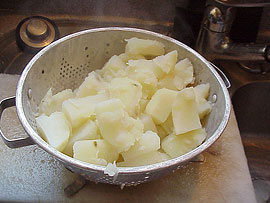
And immediately dump the contents into a colander. I think it's important to stop
the cooking, and to get the potatoes dried off.

For home consumption of small batches, I'll often use Uncle Preston's old potato
masher, but for company I get out a potato ricer. I recently
found this new cheap ricer that has extra big holes, so the work goes fast and easy.
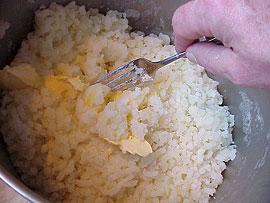
While they're still hot, I'll stir in some butter (or margarine) and a bit of milk.
Gotta go easy on the milk, to avoid making this into glue at the last stage. I like
to use just enough to avoid a crumbly look.
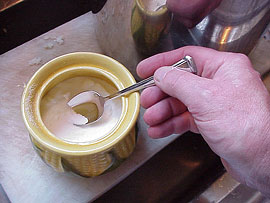
And, here's the last minute secret ingredient that make's everything right. If the potatoes have a slightly bitter taste, I'll make an adjustment with a tiny bit of sugar. It's amazing what that can do! I don't use enough to be noticeable, of course.
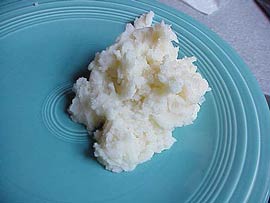
Ah, this picture is making me hungry right now. The mashed potatoes land on the plate looking like a fluffy cloud, not like a lump of plaster. Sure, it takes a bit of care, but making the best mashed potatoes takes no more time than the worst.
Really good mashed potatoes like these will stand a day or two in the refrigerator, and come out quite passable as leftovers.